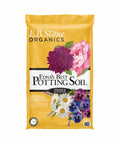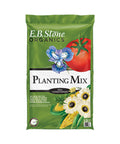Details
Alaska Azalea is an open multi-stemmed evergreen shrub with a mounded form. Its relatively coarse texture can be used to stand it apart from other landscape plants with finer foliage.
This is a relatively low maintenance shrub, and should only be pruned after flowering to avoid removing any of the current season's flowers. It has no significant negative characteristics.
Alaska Azalea is recommended for the following landscape applications:
- Mass Planting
- General Garden Use
- Container Planting
Features
Alaska Azalea is bathed in stunning clusters of white trumpet-shaped flowers at the ends of the branches from late winter to early spring, which emerge from distinctive creamy white flower buds. It has attractive dark green foliage which emerges light green in spring. The glossy oval leaves are highly ornamental and remain dark green throughout the winter. The fruit is not ornamentally significant.
Care
Planting & Growing
Alaska Azalea will grow to be about 4 feet tall at maturity, with a spread of 5 feet. It has a low canopy. It grows at a slow rate, and under ideal conditions can be expected to live for 40 years or more.
This shrub does best in full sun to partial shade. It requires an evenly moist well-drained soil for optimal growth, but will die in standing water. It is very fussy about its soil conditions and must have rich, acidic soils to ensure success, and is subject to chlorosis (yellowing) of the leaves in alkaline soils. It is somewhat tolerant of urban pollution, and will benefit from being planted in a relatively sheltered location. Consider applying a thick mulch around the root zone in winter to protect it in exposed locations or colder microclimates. This particular variety is an interspecific hybrid.
Alaska Azalea makes a fine choice for the outdoor landscape, but it is also well-suited for use in outdoor pots and containers. Because of its height, it is often used as a 'thriller' in the 'spiller-thriller-filler' container combination; plant it near the center of the pot, surrounded by smaller plants and those that spill over the edges. Note that when grown in a container, it may not perform exactly as indicated on the tag - this is to be expected. Also note that when growing plants in outdoor containers and baskets, they may require more frequent waterings than they would in the yard or garden.


































